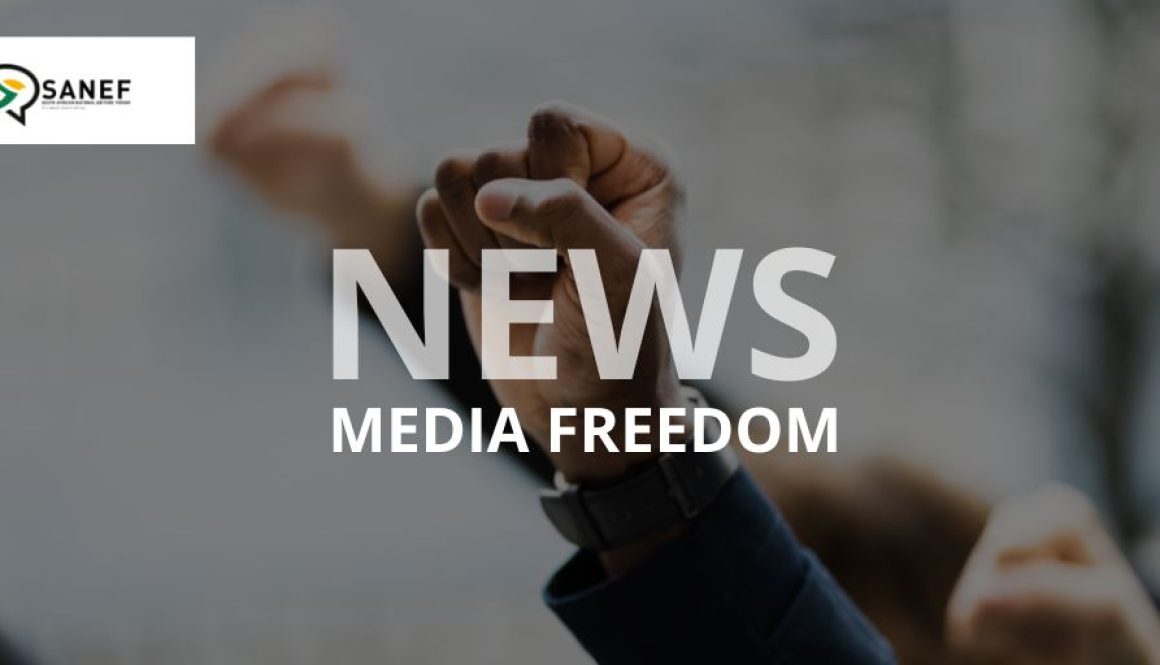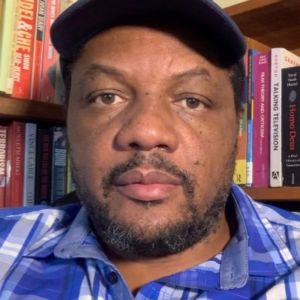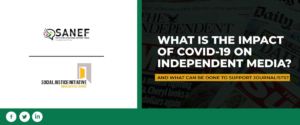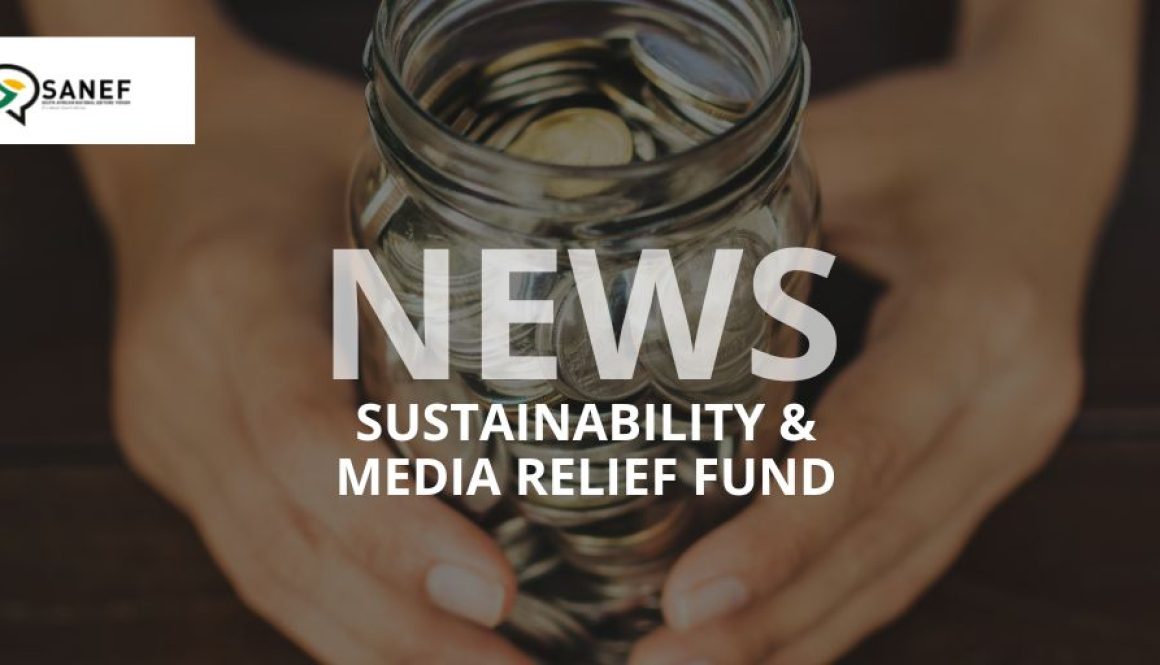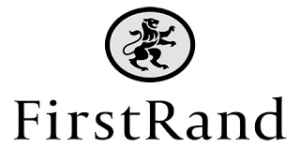Joint Statement of SANEF and SAPS following a robust and fruitful meeting
26 July 2020
On Thursday 23 July the South African National Editors’ Forum (SANEF) and the South African Police Services (SAPS) management held a robust, frank and successful meeting on a wide range of issues, including the working relations between journalists and members of the police.
The SANEF delegation, led by Deputy Chair Katy Katapodis, met the SAPS delegation, led by National Police Commissioner General Khehla John Sitole. SANEF tabled concerns regarding the hindrance and harassment of journalists in courts around the country as well as the media’s experiences of harassment and injury by SAPS members while in the field covering the Coronavirus crisis.
In turn, SAPS tabled concerns regarding some members of the media obstructing police in their course of duty. Further, they outlined their new Online Policing Strategy to fight crime online. The details will be released at the later stage.
The meeting agreed that despite specific serious incidents, the relationship between journalists and the various units of the SAPS was primarily mutually cordial, reflecting the spirit of cooperation between the media and the SAPS. The meeting agreed that this showed that both journalists and police officers can do their jobs without confrontation and that it is possible for both parties to respect their various roles out in the field.
Further, the meeting decided to recommit to the Memorandum of Understanding, which was signed more than 10 years ago but is still relevant. It was agreed that this document needed to be updated and made relevant to the current times, before being signed by September.
To take this work further, the meeting agreed to establish a team with representatives from both SAPS and SANEF to unpack the Memorandum of Understanding. It will recommend a programme of action that includes training for journalists on crime scene etiquette and training for police officers on the critical role of the media in covering crime and protests.
Note to Editors: The South African National Editors’ Forum (SANEF) is a non-profit organisation whose members are editors, senior journalists and journalism trainers from all areas of the South African media. We are committed to championing South Africa’s hard-won freedom of expression and promoting quality, ethics and diversity in the South African media. We promote excellence in journalism through fighting for media freedom, writing policy submissions, research and education and training programmes. SANEF is not a union.
For more information please contact:
SANEF
- Katy Katopodis – SANEF Deputy Chairperson, (082) 805-7022
- Mary Papayya – SANEF Media Freedom Chair (082) 379-4957
- Judy Sandison – SANEF KZN Convenor (082) 571-3334
- Hopewell Radebe – SANEF Gauteng Regional Convenor (083) 582-1734
- Kate Skinner – SANEF Executive Director – (082) 926-6404
SAPS
Brigadier Vishnu Naidoo – National Commissioner’s Spokesperson – 082 567 4153
Socials
Twitter: @SAEditorsForum
Email: [email protected]
Website: SANEF


